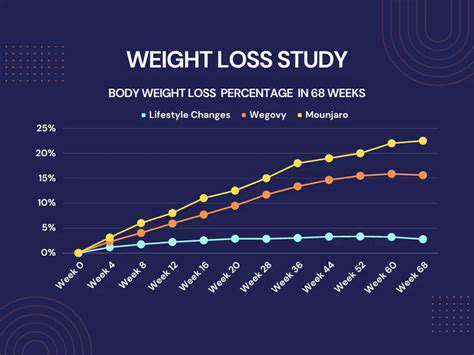Guide to Building Optimism and a Positive Outlook
The Power of Gratitude and Appreciation

Cultivating a Mindset of Appreciation
Gratitude, a powerful emotion, is more than just a feeling; it's a mindset that shapes our perspective and influences our overall well-being. By actively focusing on the positive aspects of our lives, we can cultivate a deeper sense of appreciation for the people, experiences, and opportunities that come our way. Recognizing and acknowledging the good things in our lives, no matter how small, can transform our outlook, making us more resilient and optimistic in the face of challenges. This practice can lead to a more fulfilling and meaningful life, fostering a sense of contentment and joy.
It's not always easy to shift our focus to gratitude, particularly when we're facing adversity. However, consistent effort in recognizing the positive elements, even if they seem insignificant, can lead to significant improvements in our emotional well-being. Regularly expressing gratitude, whether through journaling, meditation, or simply acknowledging a kind gesture, helps solidify this positive mindset. Developing this habit creates a virtuous cycle, where appreciation begets more appreciation, leading to a more positive and fulfilling experience.
The Impact of Gratitude on Well-being
Studies have shown a strong correlation between gratitude and improved mental and physical well-being. Gratitude practices have been linked to reduced stress levels and an enhanced ability to cope with challenging situations. This positive impact stems from the ability of gratitude to shift our focus from what we lack to what we have, fostering a sense of contentment and contentment. This shift in perspective can lead to increased resilience and a more optimistic outlook on life.
Furthermore, gratitude is closely associated with improved relationships. By expressing appreciation for the people in our lives, we foster stronger bonds and deepen connections. Appreciating the efforts and contributions of others cultivates empathy and strengthens social support systems, ultimately leading to a more supportive and fulfilling social environment. This positive feedback loop, where expressing gratitude strengthens relationships, further enhances our well-being.
Practicing gratitude also has a positive impact on physical health. Studies suggest that gratitude can lead to better sleep patterns, reduced inflammation, and an overall sense of calmness and well-being. These benefits highlight the far-reaching and multifaceted impact of gratitude on our lives.
In conclusion, cultivating a grateful mindset is a powerful tool for improving both our emotional and physical well-being. By regularly expressing gratitude, we can foster stronger relationships, enhance our ability to cope with challenges, and experience greater contentment and joy.
The Importance of Self-Care and Healthy Habits
Prioritizing Your Well-being
Self-care isn't selfish; it's essential for building resilience and optimism. Taking time for activities that nourish your mind, body, and spirit allows you to better manage stress, improve focus, and cultivate a positive outlook. This includes recognizing your needs and actively working to meet them, whether it's through meditation, spending time in nature, pursuing a hobby, or simply enjoying a quiet cup of tea. Prioritizing your well-being is the bedrock upon which a healthy and optimistic lifestyle is built.
Consistent self-care practices, even small ones, can significantly impact your overall mental and emotional health. This proactive approach to well-being sets the stage for greater emotional regulation and a more positive response to challenges, fostering an environment conducive to optimism.
Establishing Healthy Sleep Patterns
Adequate sleep is crucial for both physical and mental health. A consistent sleep schedule helps regulate your body's natural sleep-wake cycle, leading to improved mood, increased energy levels, and enhanced cognitive function. Aim for 7-9 hours of quality sleep each night, creating a relaxing bedtime routine that signals to your body it's time to wind down.
Insufficient sleep can significantly impact your mood, concentration, and overall well-being, making it harder to maintain a positive outlook. Prioritizing a healthy sleep schedule is a proactive step towards building resilience and fostering optimism.
Nourishing Your Body with Healthy Foods
Fueling your body with nutritious foods is paramount for maintaining energy levels, supporting physical health, and contributing to a positive mental state. A balanced diet rich in fruits, vegetables, whole grains, and lean proteins provides the essential vitamins and minerals needed for optimal function. This includes mindful eating practices, paying attention to your body's hunger and fullness cues. Making informed food choices directly impacts your energy levels and emotional well-being.
Managing Stress Effectively
Stress is an inevitable part of life, but learning to manage it effectively is key to maintaining a positive outlook. Identifying your stressors and developing healthy coping mechanisms, such as exercise, deep breathing techniques, or spending time in nature, can help you navigate challenging situations with greater ease. Chronic stress can significantly erode optimism, so actively managing stress is essential for building resilience and maintaining a positive mindset.
Cultivating Mindfulness and Gratitude
Practicing mindfulness involves paying attention to the present moment without judgment. This can be achieved through meditation, deep breathing exercises, or simply taking a few moments to appreciate your surroundings. Cultivating gratitude for the positive aspects of your life, big or small, can shift your focus towards appreciation and positivity. Regular mindfulness and gratitude practices foster a sense of contentment and well-being, which are critical components of optimism.
Building Strong Social Connections
Strong social connections are vital for overall well-being and contribute significantly to optimism. Nurturing relationships with friends, family, and loved ones provides support, understanding, and a sense of belonging. Meaningful interactions and social connections help buffer against stress and cultivate a positive emotional environment. Connecting with others strengthens your support network and provides perspective, leading to a more optimistic outlook on life.
Engaging in Regular Physical Activity
Physical activity is more than just exercise; it's a powerful tool for boosting mood and promoting well-being. Regular physical activity, whether it's a brisk walk, a yoga class, or a team sport, releases endorphins that have mood-boosting effects. Engaging in activities you enjoy not only improves physical health but also enhances your mental well-being, contributing to a more optimistic outlook on life. The benefits of regular physical activity are multifaceted, impacting both your physical and mental states.

Read more about Guide to Building Optimism and a Positive Outlook
Hot Recommendations
-
*Guide to Managing Gout Through Diet
-
*Best Habits for Financial Well being
-
*How to Build a Routine for Better Mental Health
-
*How to Eat Healthy on a Budget [Tips & Meal Ideas]
-
*Guide to Practicing Self Acceptance
-
*How to Incorporate More Movement Into Your Day
-
*Guide to Managing Chronic Pain Naturally
-
*Guide to Building a Reading Habit for Well being
-
*Top 5 Weight Loss Supplements That Actually Work
-
*Best Exercises for Postpartum Recovery [Beyond Abdominal Work]
![Best Books on Mental Health and Well being [Recommended Reads]](/static/images/26/2025-05/CultivatingSelf-CompassionandPositiveSelf-Talk.jpg)










